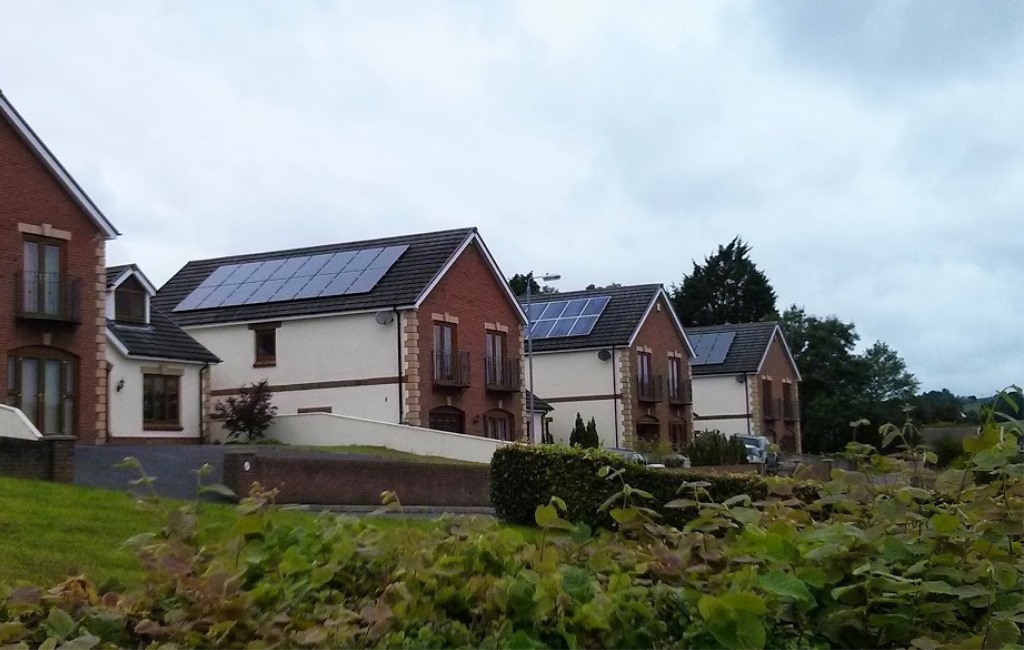16MW Solar PV Projects could be “Ghosted” by Government due to FiT deployment cap breach
• The over 50kWp rooftop solar PV Feed-in-Tariff band has been breached by 16MW (enough to power 3,300 homes)
• Projects may be unable to deploy despite being developed in good faith, whilst other bands still hold significant free capacity, totalling 450MW
• The REA urges government to reallocate spare capacity and introduce the SEG as soon as possible, to ensure that microgeneration has a route to market
With the closure of the government support mechanism for microgeneration just 10 days away, the Feed-in-Tariff band for over 50kWp rooftop solar projects has been breached. Ofgem’s weekly capacity updates show that an additional 16MW of projects (which could power over 3300 homes) have been registered, although these risk being “ghosted” by the government scheme due to stringent capacity band caps.
Whilst this is not the first time projects have been potentially abandoned due to Feed-in Tariff cap restraints, this is the most significant occurrence to date.
The REA urges the government to address the issue imminently, publicly confirming that all registered projects will be able to receive FiT support; and to reallocate some of the spare capacity from lower bands (for which government funding has already been set aside) to the over 50kWp band. This will allow the government to maximise on the impact of available funds, and support small businesses operating in this area.
Lower capacity bands (10-50kWp and under 10kWp) are failing to secure applications, leaving around 450MW of spare capacity unused. Despite funds being allocated to the Feed-in-Tariff mechanism, the stringent capacity band caps now mean that it is likely a large amount of these funds will be wasted, to the detriment of the sector, should the government decide not to adjust the caps.
The Feed-in-Tarrif support scheme is due to close at the end of March, with no Smart Export Guarantee in sight for the 1st April – a cruel April fool’s joke for the microgeneration industry which is left with no route to market. Many British SMEs have already fallen at the first hurdle, with the export tariff rate dwindling.
To ensure businesses manage to keep their heads above water during this difficult period the Smart Export Guarantee must be introduced as quickly as possible after the end of March. Developers and installers are encouraged to regularly check deployment cap status on the Ofgem website in the coming days.
Frank Gordon, Head of Policy at the Renewable Energy Association commented:
“Surpassing the FiT deployment cap for over 50kWp solar PV projects, with such large amounts of capacity left unused in other bands, shows that funding should be reallocated between bands to prevent lost investment and improve efficiency.
“Not acting now could result in yet another pipeline of projects being ‘ghosted’ – where developers thought progress was being made then, despite their time and efforts, they suddenly disappear.
“The REA has been campaigning for reallocation of funding for a long time, and we hope that government will reconsider and address this issue urgently to utilise the full amounts of funding set aside for the UK microgeneration and solar industry and be flexible with some of their development caps.”
“The closure of the Feed-in-Tariff and prolonged time gap between the introduction of the proposed Smart Export Guarantee is highly damaging to the solar PV industry. Hundreds of British SMEs installing solar are already facing huge challenges, and leaving the sector with no route to market risks significant job losses and lost investment at a time when we need more generation capacity.”
—ENDS—
Notes to editors
• The Feed in Tariff Weekly Deployment Update can be found here: https://www.ofgem.gov.uk/environmental-programmes/fit/contacts-guidance-and-resources/public-reports-and-data-fit/feed-tariffs-deployment-caps-reports
• The Excel sheet image can be found attached
For more information or to request an interview, please contact:
Hayley Allen
External Affairs Officer
+44 (0)20 7981 0862
[email protected]
About the Renewable Energy Association (REA)
The REA is the UK’s largest trade association for renewable energy and clean technologies with around 550 members operating across heat, transport, and power. The REA is a not-for-profit organisation that represents renewable energy and clean technology companies operating in over fourteen sectors, ranging from biogas and renewable fuels to solar and electric vehicle charging. Membership ranges from major multinationals to sole traders.
For more information, visit: www.r-e-a.net

